#stand-up comedy
Text

#Musical Comedy#Synthpop#Film Soundtrack#Stand-Up Comedy#Alt-Pop#Alternative R&B#2010s#2020s#USA#poll
128 notes
·
View notes
Photo

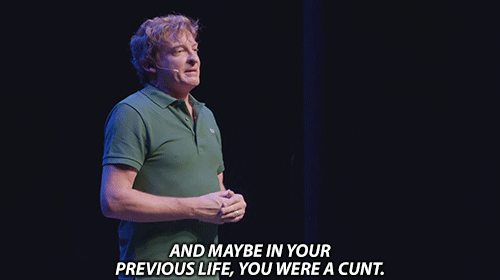
Rhys Darby
“Mystic Time Bird”
#Rhys Darby#Stand Up Comedy#Stand-Up Comedy#Stand Up#Stand-Up#Stand Up Gifs#Gifs#Astral Vagabond Stand Up Gifs#Astral Vagabond Rhys Darby Gifs#AVGifs
952 notes
·
View notes
Note
Hear me out. Ababadon, just being an Ab-baddie.
I'll take my leave that was a terrible pun
Then it's time again for my "Lucius tries his hand at stand-up comedy" pictures!
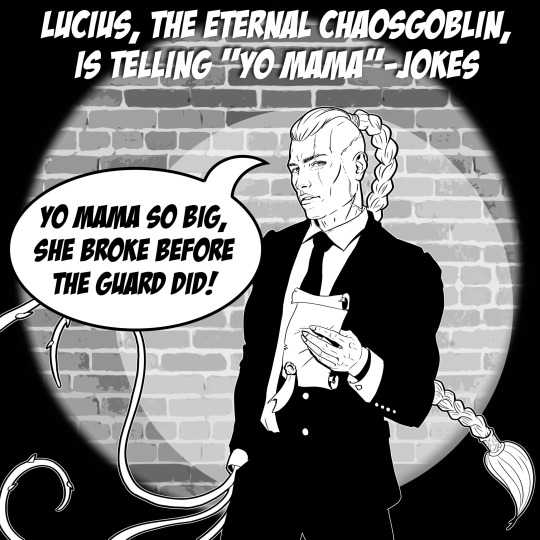
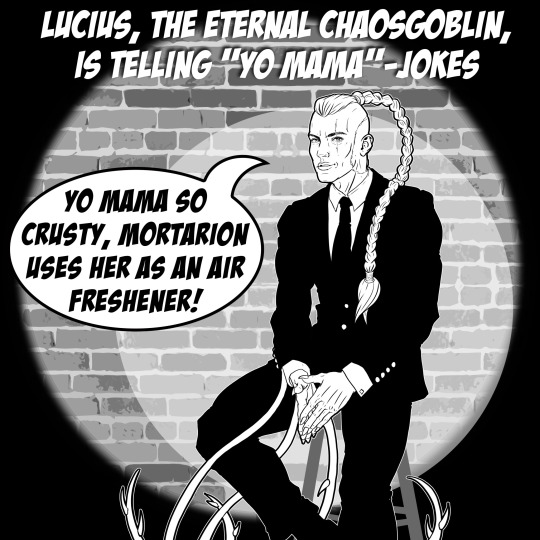
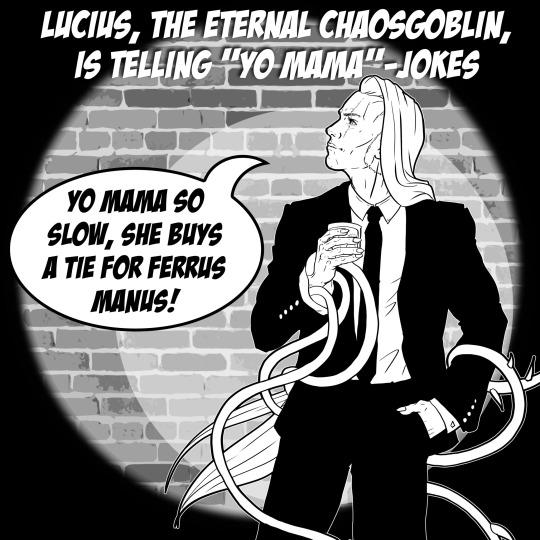


#warhammer#emperor's children#space marines#Lucius the Eternal#Stand-Up Comedy#Space but everything is silly
43 notes
·
View notes
Text
So I was doing Stand-Up Comedy and I made this joke where I said, "Millenials actually had to pay for their music! That's crazy. I guess this was before the era of downloading illegal mp3s, because they had to buy these things called, "CDs". Imagine having to pay actual money to listen to a song. And if you wanted a specific song, you couldn't just download the one, you'd have to purchase the WHOLE ALBUM. Really, it's shocking to me that Millenials spent that much money on music. Gen Z really got their priorities straight because they saved all the money that Millenials spent on music; and used it for top surgery".
No one laughed.
#Stand-Up#stand up#stand up comedy#Stand-Up Comedy#comedy#comedian#comic#joke#meme#trans#transgender#top surgery#queer#music#gen z#Millenials
54 notes
·
View notes
Text
(With worrying sincerity in the middle of a stand-up set that's otherwise going really well) Alright. Time to talk about Torture.
21 notes
·
View notes
Text
The Relief of a Queer Audience as a Fruity Stand-Up Comic
Explaining one’s existence takes up time.
On Medium / / On Patreon.
I’m a stand-up comedian.
Last week, I did some comedy at a queer-run, queer-centred open mic — suddenly, a twelve-minute set fit into six, because I was in a room full of queer people who knew exactly what I was talking about.
I didn’t have to take time to explain what bears, twinks, and otters are; I didn’t have to make sure everyone had a working understanding of what Grindr is; I could make puns and little quips that because of the sheer cultural gap, a cis straight audience just wouldn’t be equipped to understand.
In front of straight audiences, I often mention RuPaul’s Drag Race — in front of queer ones, I’ve never even thought about it.
There is an unfortunate rule in stand-up comedy that basically every marginalised stand-up comic has experience of, and knows that they often have to follow in rooms where they’re the minority, and even in many rooms where they’re not.
Comedy is the art of creating tension, and then breaking it. The essence of a good punchline lies in surprising the audience — they laugh because they didn’t see the joke’s culmination coming.
Because of the way marginalised people are treated in our society, when we are surrounded by those who are part of the majority of which we’re not a part, or when we are noticeably different in some way, our very existence creates tension.
As a gay man, and particularly as a gay man who’s very faggy and effete, who is most explicitly not interested in assimilating with cis-hetero society, I often find that my presence in some rooms can discomfort those around me. Straight men, particularly, often become nervous — people choose their words more carefully, or they clam up and don’t dare to speak at all.
Many of these people would say it comes from a fear of “offending” me, which is a polite way of saying they don’t know how to be normal when they talk to an obviously gay man. Either they’re ordinarily casually homophobic, or they say bizarre shit about gay people — and they feel quite comfortable saying things like that around other straight people, but when there’s a gay person right there?
Well, they might be called out on that shit.
They’re more comfortable with gay people when we exist in theory, and they can’t see one right in front of them.
Most people in 2023 do know other gay men and queer people, though, even if they don’t necessarily know one that’s as fruity as I am — as a trans man, though? That discomfort goes through the roof.
And I experience that as a white man who’s thin and isn’t visibly disabled most of the time. When I’m using my cane or wearing joint braces, it ramps up even further — friends of colour, especially people I know who are Black and darker skinned, especially who wear hijabs or other head coverings, or who have natural hair, experience all this discomfort a thousandfold, of people’s stares and discomfort, the questions that are building up on their tongues.
What does this have to do with stand-up comedy?
That discomfort that one feels when one walks into a room where one is outnumbered, where one is known to the room as Different, a Minority, and Marginalised… When you walk onto a stage, it becomes quite literally spotlit.
As I said, your existence creates tension.
People don’t often think of it like this, but stand-up comedy is a form of one-person theatre. You are in essence performing a monologue for your audience, and part of your performance is in making your monologue appear spontaneous.
As in any form of theatre, it’s important to engage with your audience. You don’t just practice in private, learn your work off-rote, and then do precisely the same thing in front of the crowd.
You listen for when they’re breathing. You pause when they need time to digest what you’ve said, or to let a particular line make its emotional impact. When they applaud, you might choose to hesitate a few moments before you go on, letting that applause dissipate — other times, you might shout over the noise.
Because the whole of the audience is fixed on you and your work on the stage, you control the room — you do this by creating a world, a narrative, that you are all sharing together.
When you start to tell a joke, you begin ramping up the tension. You are drawing your audience in, asking them to imagine the world you’re envisaging, to come along with you for the ride. The longer you talk for, the tighter you turn those screws, the more tension there is in the room, the more anticipant the audience is, the more they hold their breaths —
Then you tell the punchline, and that tension is broken as the audience (hopefully) laughs.
This process comes down to one’s theatrical skill. The audience needs to be able to understand what you’re saying and what you’re communicating, they need to trust that you’re leading them in a direction that will be funny, that you’re worth listening to, and worth laughing with.
Almost no comedian would start their set with a long joke that takes a lot of set-up to get to the punchline, because much of the audience wouldn’t listen to the set-up. They’d be irritated and impatient at all this babble that doesn’t seem to be going anywhere.
You tell a few shorter jokes at first — you break the initial tension between you, a stranger, and the audience. You let them learn who you are as a person, and trust that you’re funny, that you’re equipped to lead them on his journey and give them a few more laughs.
You might even hear comedians talking about rooms in terms of temperature, talking about a “warm” room or crowd, or a “cold” one, or an MC talking about warming an audience up — a warmer audience is more receptive; a colder audience is more shut down, disinterested. Even the funniest material won’t land if the audience is shut off and doesn’t want to hear it.
Sometimes an audience will shut themselves off consciously and purposely — for example, certain men might have a little tantrum when they see a woman comic walk on stage, and they might cross their arms over their chest and decide they won’t be laughing at anything she says, because they’ve already decided she’s not funny.
As a gay guy, I’ve absolutely experienced that from staunch homophobes in the audience, especially when I start making jokes about sex.
But some audiences become unreceptive not because they’re intentionally rejecting a relationship with the comedian — they’re distracted.
When I was performing as a comic before I passed as cisgender, I could often feel the audience telegraphing their “confusion” about who and what I was.
They weren’t listening to my jokes because they in their heads they were thinking, “So, is this a lesbian? Is it a man or a woman? Are they queer?”, and because they were so focused on that, they weren’t coming with me on the jokes I was actually telling.
If your identity requires any kind of “explanation,” you often try to address it in your opener, because until you break that initial tension, you can’t start building and breaking new tensions with your actual jokes.
If someone noticeably different, who’s a member of a marginalised community or is just from a background or community they’re not used to, walks on stage, a lot of the audience will wait for the punchline.
However subconsciously, the audience thinks of someone they consider different-looking — someone who looks very queer instead of straight, who’s a woman instead of a man, who’s Black or East Asian or Indigenous or otherwise not-white instead of white, who’s disabled instead of abled, and yeah, who looks like they might be trans — walking onto the stage as the set-up for a joke.
What’s unfortunate is that to get certain audiences on-side, they’ll stay shut down until in some way you assure them that you’re “one of the good ones” — if you’re gay, for example, they want to be told that you’re not one of those gay people.
(I’m not personally equipped to tell them that, because whatever negative connotations “one of those” has, I almost certainly deserve them.)
They want to be assured that you won’t say, for example, that the bigotry you’re treated with is bad — and if you must say that, you absolutely must not imply that the audience might have a hand in it, God forbid!
That’s the root of a lot of their discomfort. Audiences don’t want to be “preached” to, don’t want to hear about anything “woke”, don’t want to be called out.
Any marginalised person can tell you that a lot of the time you’re not doing any of those things — you’re just talking, and because the other person feels a lot of guilt about your existence, they interpret it as preaching or criticism. Sensitive sorts, these cishets.
Fuck me, the relief I feel when I’m in a queer comedy room, and I don’t have to explain anything.
Fuck explaining terms, or lingo, or the queer and trans cultural aspects that a straight audience might not be familiar with — in front of a queer audience, I don’t have to explain me. I don’t have to justify my existence, or footnote it, before I can get to the performance.
I can just tell the jokes I came on stage to tell, and enjoy the laughs that follow.
28 notes
·
View notes
Photo

Fozzie's Bear-ly Funny Fridays (2015)
Source: Tenor
#the muppets#fozzie bear#stand-up comedy#comedian#wocka wocka#muppet#muppets#gif#muppet gif#muppets gif#gifs of puppets
55 notes
·
View notes
Text
Hi, everyone!
With the WGA strike still going strong, I came across this fascinating Hollywood Reporter article about one form of expression that is BOOMING for writers—
Stand-up comedy! 🙌
Since stand-up doesn’t fall under the guild’s restrictions, a number of tv show and late-night writers have returned to the stage to brush up on their joke-writing skills as well as more famous writers like Mulaney, Armisen, and Silverman doing sets to supplement their lost income.
Here are some choice quotes:
Regulars (and WGA members) like Nick Kroll, John Mulaney, Brett Goldstein, Fred Armisen and Sarah Silverman have all been doing gigs during the strike, as well as stars who less frequently do live shows like Quinta Brunson, Seth Rogen, Jason Segel and Ted Lasso‘s Phil Dunster. Many late night TV writers also decided to pursue stand-up after their shows went dark starting May 2.
Adds Felipe Torres Medina, a writer on The Late Show With Stephen Colbert who is focusing on a one-man comedy show about immigration during the strike, “It’s a little bit of a way to do jokes, do comedy, perform and get out there and do what we love. If it’s supplemental income, that’s great, and if it is income [at all] that’s great. But I think it’s more of, at least for me, it’s a love-of-the-game situation rather than a career pivot.”
Adds Koff, “It’s good to be able to have a way to generate money and not have the studios get part of it, whether it’s like raking someone’s leaves or doing stand-up. It’s good to be able to do comedy and not have some CEO make money off of it.”
I’m SO thrilled that stand-up comedy is continuing to thrive while other forms of entertainment struggle. And I can’t wait to attend more shows this summer! ✌🏼
#stand-up comedy#stand up comedy#standup#standupcomedyhistorian#hollywood reporter#john mulaney#sarah silverman#fred armisen#writer's strike#wga strike#writer's guild of america
21 notes
·
View notes
Text
Stand-up comedians will be like, “Now, my parents were not child abusers!” and then go on to tell you THE most fucked-up story of emotional abuse you’ve ever heard.
289 notes
·
View notes
Text
Let's say — hypothetically — someone DOES NOT want to support Netflix, but DOES want to watch some of their stand-up comedy specials.
.............
Like, is there a cure for that?
I've heard about resources for lots of different kinds of streaming content. Movies, anime, TV series, whatever. It's crazy how much y'all have found out there on the webz.
Never seen ANY resource like those for stand-up comedy, though. Which is interesting.
#john mulaney#ali wong#arsenio hall#chris rock#netflix#netflix comedy#stand-up comedy#eric andre#dave chapelle#...that fuckin guy yeah#chris d'elia#who else they got on there?#bill burr#hannah gadsby#iliza shlesinger#mike epps#jim jeffries#jerry seinfeld#patton oswalt#oh hell there's one I actually like right there#ronny chieng#yeah he's great#tig notaro#another good one#pirating#.... is of course a dirty word and something we should not do#*cough cough*
24 notes
·
View notes
Text
youtube
All of Shayne's "Giggle Hut" bits from Try Not To Laugh
All the greats are cancelled: Betty White, Bob Saget...
7 notes
·
View notes
Text
Peter Kay - Misheard Lyrics - Live Streaming With Just Jen Reacts
https://rumble.com/v32ujjs-peter-kay-misheard-lyrics-live-streaming-with-just-jen-reacts.html?mref=1t2sy0&mc=e0pra

#Breedsblood1#Just Jen#Just Jen Reacts#Just Jen Reaction#American Chick Reacts#Live Streaming#With Just Jen Reacts#Breedsblood#Peter Kay#Peter John Kay#Misheard Lyrics#The Tour That Didn't Tour Tour#Stand-up Comedy#Musical Comedy#Observational Comedy#Song Lyrics#Misheard Words#Comedy Video Reaction#Live On Stage#English Stand-up Comedian#Male Comedian#Lancashire#England#reaction video#comedy reaction#peter kay reaction misheard lyrics#Comedy#comedian
2 notes
·
View notes
Text
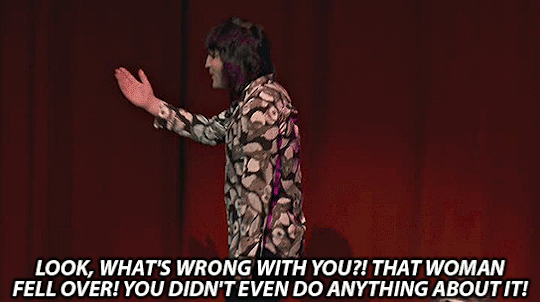
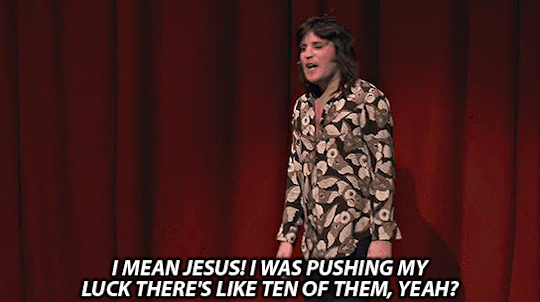
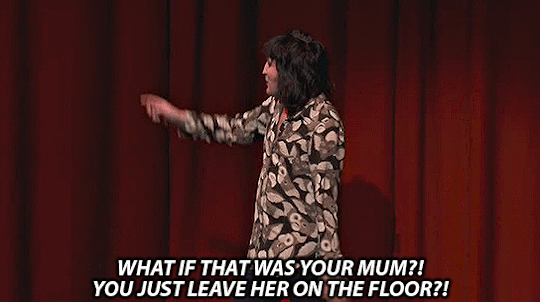
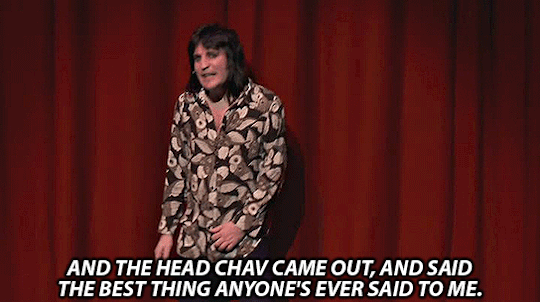

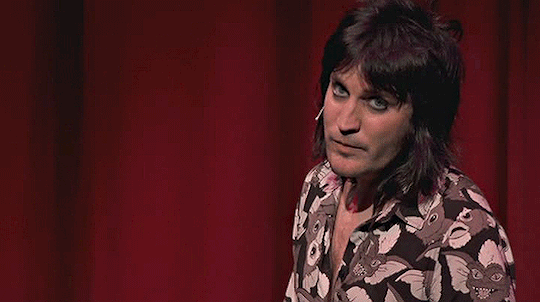
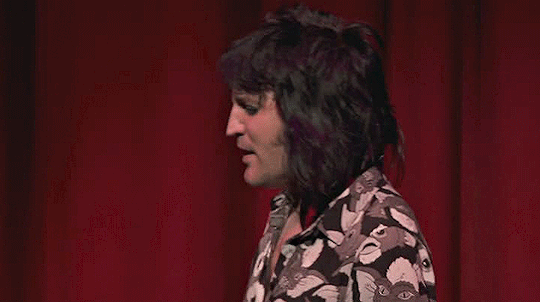
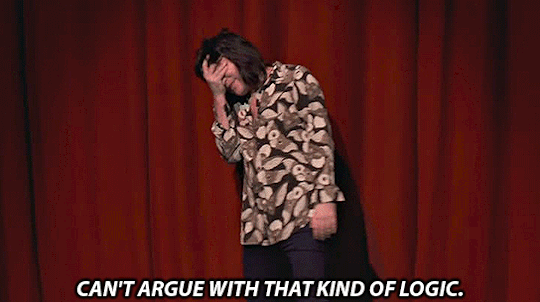
An Evening with Noel Fielding (2015)
#Noel Fielding#An Evening with Noel Fielding#Stand-Up Comedy#Stand Up Comedy#Stand Up#Comedy#British Comedy#Noel Fielding Gifs#Gifs#AVStandUp#AVStandUpGifs#AVGifs#AVNoelFielding#AVNoelFieldingGifs#AVBritishComedy#AVComedy
29 notes
·
View notes
Text
youtube
Seems like Florida was a rough place even before desantis began shitting all over the state...
3 notes
·
View notes
Text
As a comedian I'd just like to say thank you to everyone who considers themself "Woke", supports modern inclusivity initiatives and still tolerates/enjoys dark humour and politically incorrect comedy.
You are a blessing to society.
#comedian#woke culture#LGBT#LGBTQ#LGBTQ+#feminism#comedy#Stand-Up#Stand-Up Comedy#wokeism#dark humour#politically incorrect#politically incorrect comedy
15 notes
·
View notes
Photo
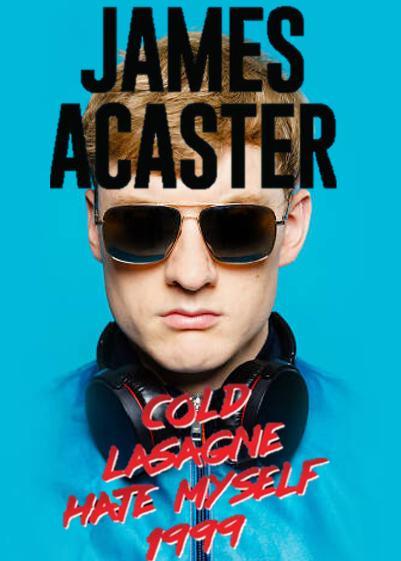
This show means a whole lot to me. In March of 2019 I travelled over 900 miles to see the show twice at the Comedy Attic in Bloomington, Indiana. It was two months after I got myself into therapy for the first time. My workplace had flooded Dec 2018 and I was in a really dark place mentally. Dealing with my workplace really shook me and I basically experienced dark feelings that I hadn't dealt with for 8 years. I had fallen in love with Repertoire in March of 2018 and it was one of the few things that still gave me joy during that dark time (Nov 2018-March 2019). Going on this trip to see Cold Lasagne Hate Myself 1999 was a manifestation that I deserve to take the time to give myself what I need. I owed it to my 15 year old self, and my 24 year old self. I arrived at the venue pretty late, and had to sit against the back wall and I only got to hear Paul William's Euroleague once or twice with James playing it off his ipod. Each of the shows were only one hour long, but the first show James got so distracted by audience members (someone had hiccups) that he only got through, at most, three bits from the actual show. It was a disaster. I found it to be hilarious and I was just in awe of arriving at this place I'd never been before and seeing my fav comedian, regardless of the fact that it was basically an hour long improv set. You could see that James was unhappy about how it went when he got off the stage. Everyone left, except for me because I had a ticket to the second show, and the employees of the venue had been given word that I'd be staying inside the room during the reset for the next show. During this time, I moved up to the front row and James went into the bathroom. I seriously questioned whether or not I should say hello. I had bought peanut butter cups at the airport just in case I did get the chance to meet James and wanted to give him a gift. I knew I'd be mad at myself if I didn't take the opportunity to say hi, I had come a long way and really needed a laugh, although I wasn't sure he'd be happy to say hello to a fan after he bombed a performance. I took a breath and said, "hey James!" when he was headed back to the green room. He looked as me like I was an employee there, and then realized I wasn't. He just looked tired. I gave him the peanut butter cups and said I'd come from a long ways away, which prompted him to say, "well, sorry for that then!" but I assured him it was still great and I had bought tickets to both shows so it wasn't bad at all. I then took a breath and told him that I recently got myself into therapy because of his honesty about seeing a therapist on some podcasts and that his work has had a great impact on me and I thanked him for that. He looked genuinely surprised and more relaxed, said thanks, and went back to the green room. The second show lasted for 45 mins because he sped through almost all the bits of the routine. He left out the Brexit stuff for the American audience, finished with the Great British Bake Off story, and ended the show with a Question and Answer portion. I made two friends at the table I was sat at that night, one of whom I still keep in contact with. Seeing this live streamed in 2020 from my home I am even more happy I went on the trip to see Cold Lasagne Hate Myself 1999 in person, and I am even more grateful for the work of James Acaster. You. Gotta. Heap.
#James Acaster#cold lasagne hate myself 1999#britcom#british comedy#pat springleaf#repetoire#comedy#stand-up comedy#stand-up#review
50 notes
·
View notes